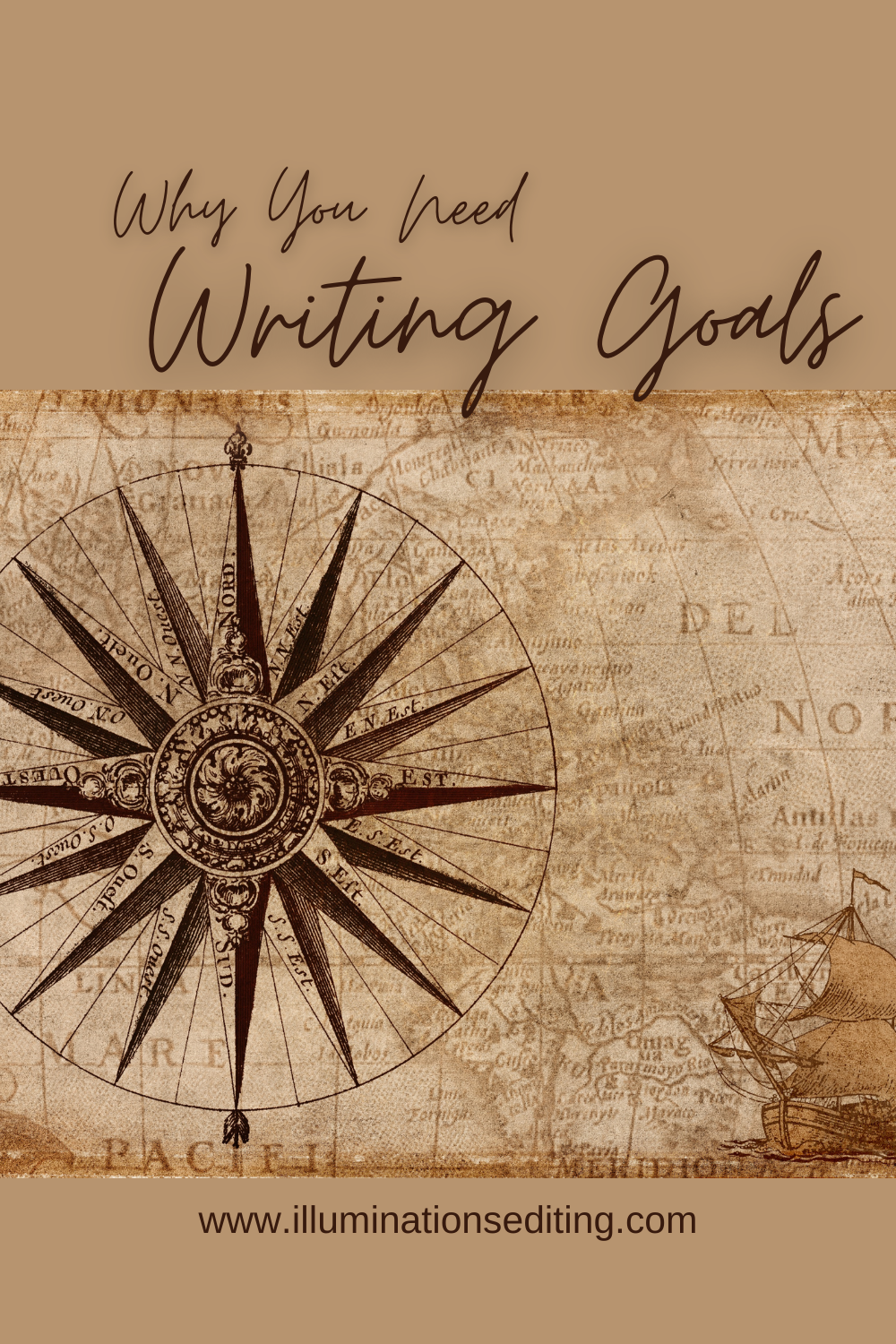Have you ever hopped in your car and struck out in whatever direction the mood took you? You chased views, discovered places you didn’t know existed, and experienced the thrill of the unpredictable. And if that’s all you’d hoped would happen, then your excursion was a success.
But what if there’s a particular place where you want to end up? What if resources like time, energy, and money are on the line? What if you’re hoping to catch those surprising views and reach a destination?
That’s what goals are for.
Although the stereotypical writer follows a muse rather than a to-do list, goals are essential for anyone who wants to move beyond “just scribbling” to making writing an intentional, meaningful part of their life. Here’s why.
Goals provide direction.
Let’s say you have an idea for a story about a family that enters a ballooning competition. You boldly start writing and are immediately mired in questions like Who is the protagonist? How long is this story? What is my writing style? Oops! You may be struggling because you haven’t yet decided what kind of story you want to write. Is this literary fiction? YA? A picture book? Once you have a clear target audience in mind and can imagine the kind of book they’re reading, you’ll also have the needed direction to decide which member of the family is your protagonist, what happens in the plot, and what writing style and vocabulary are appropriate.
Goals conserve resources.
Goals help you decide how much of a resource—time, energy, attention, money—to devote to writing. For example, clear goals help you decide what type of editing you need and how much you are willing to pay for it. Suppose a writer is deciding whether to pursue traditional publishing or publish their work on a personal website for an established audience. If they choose the former, they will need to pay for developmental editing to ensure their story has the best chance of catching an agent’s eye. But if they choose the website option, they might decide that copy editing is enough for their purposes.
Another example of resource conservation through goals is time management. How much of your time are you willing to devote to writing, especially if this means sacrificing income or activities? If you are honest about the goal you want to achieve and realistic about how long it will take to achieve it, you can happily invest the time needed—or adjust the goal to something you are willing to work toward.
Goals motivate.
Writing is hard, confusing work. Even authors with million-dollar book contracts grit their teeth to get through a draft. When the joy of doing what we do eludes us, we need motivation to continue working at it. Goals can keep us going by reminding us of the destination and what it will take to get there. They are like a friendly personal trainer who says that you can go on that river rafting trip through the Grand Canyon next year . . . by getting on the rowing machine today.
Goals enable progress evaluation.
By setting strong goals, you will be able to regularly assess whether you are on track as you make your way through a project. If something isn’t working, you can retool your writing plan. Suppose you’ve set a goal to draft a short story within three months. Two months in, and you’ve written five pages that barely get the story started. It’s clear now that either your deadline or your progress needs to change. After evaluating your work habits and your experience writing the story so far, you add another month on to your deadline and you set a supporting goal of writing five hundred words each week.
Goals improve satisfaction.
It’s hard to celebrate an undefined achievement. When you know what you’ve been aiming for all along, you’ll know when you’ve arrived. You’ll understand the magnitude of your accomplishment. And you can pause to mark the occasion!
This principle doesn’t only apply to “big” goals like finishing the first draft of your novel. It also works for “smaller” goals: maybe writing three hundred words a day or one chapter per month. Guess what? That means patting yourself on the back every single day that you reach your goal . . . every month you reach your goal . . . and when you finally complete that draft. Good job!
Goals place writing in context.
You have things you want to achieve in other areas of life, such as your relationships, career, family, spirituality, and finances. How do you see your writing goals fitting into the big picture? And can you combine your writing goals with any of your other goals? Perhaps you want to meet new people; joining a local critique group would allow you to do that while developing your writing. Or maybe you want to write poetry—and get more exercise. If you take up a hiking hobby, you can write poems inspired by your time on the trail.
Aim for the moon and you’ll hit the stars!
Setting goals won’t eliminate all errors, ensure complete efficiency, or stop the fun. You might still take a detour or sit in traffic. And you’ll definitely have plenty of chances to stop at weird roadside attractions. But with well-set goals, you’ll have a better likelihood of arriving where you want to be.
Editors are more than red ink.
As an editor, my goal is to help you move toward your goals. Maybe you need some editorial insight on what goals to set, or you need help creating a plan to achieve your goals, or you’re ready for the specific type of editing that will move you closer to your desired outcome. I’d love to help you choose your destination, plan your journey, or find the path if you’ve wandered off it. Reach out to me for consulting or a sample edit!

